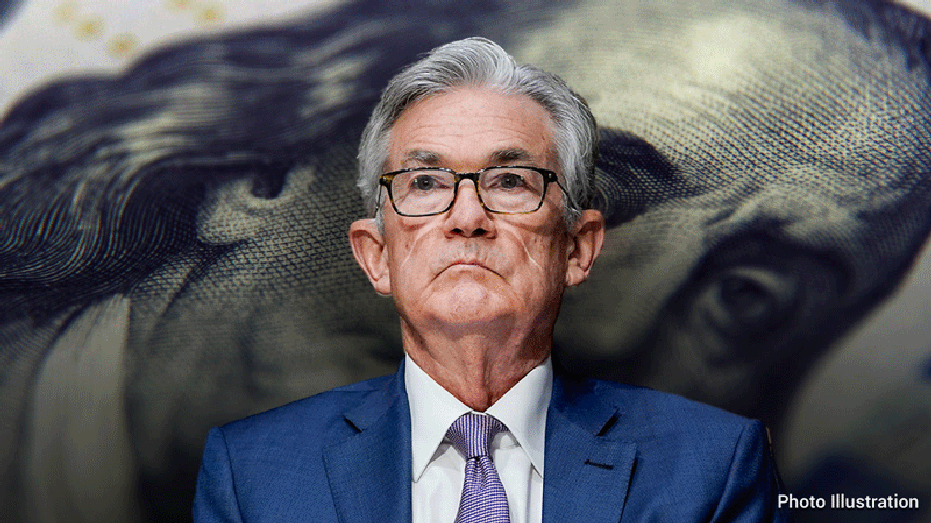Consumer sentiment falls to new decade-long low as inflation fears soar
FOX Business host Stuart Varney argues Americans’ grocery bills spiked as ‘Biden flooded the economy with cash.
A recent survey by the University of Michigan found that consumer sentiment fell to a new decade-long low as concerns about inflation grow amid the ongoing Russian invasion of Ukraine.
The University of Michigan Consumer Sentiment Index (MCSI), a monthly survey of how consumers feel about the economy, personal finances, business conditions, and buying conditions, ended March 2022 at 59.4%, representing a 5.4% decline from the final reading of 62.8% in February 2022 and a 30.0% decline from the index’ reading of 84.9% one year ago in March 2021.
The end of March reading of 59.4% is down by .5% from what was already a decade-long low of 59.7 recorded in mid-March.
‘LONELY’ ELON MUSK SAYS HUMANS SHOULDN’T LIVE LONGER, THEY WILL ‘ASPHYXIATE’ SOCIETY
The chief economist for the University of Michigan’s Survey of Consumers, Richard Curtin, said that policymakers should consider the Russian invasion of Ukraine, which began on Feb. 24 and entered its 32nd day Sunday, a major source of continued economic disruption, with new COVID variants also being a fairly minor factor.
The survey found that inflation has been the primary cause of rising pessimism, with an expected year-ahead inflation rate at 5.4%, the highest since November 1981.

Federal Reserve Chairman Jerome Powell testifies before the Senate Banking Committee hearing on Capitol Hill in Washington, U.S., December 1, 2020. (Susan Walsh/Pool via REUTERS/File Photo)
“When asked to explain changes in their finances in their own words, more consumers mentioned reduced living standards due to rising inflation than any other time except during the two worst recessions in the past fifty years: from March 1979 to April 1981, and from May to October 2008,” Curtin said. “Moreover, 32% of all consumers expected their overall financial position to worsen in the year ahead, the highest recorded level since the surveys started in the mid-1940s.”
Curtin assessed that the combination of rising prices and less positive income expectations meant that half of all households anticipated declines in inflation-adjusted incomes in the year ahead.
The only area of the economy that consumers remained optimistic over was the job market, with 30% of respondents anticipating in March that during the year ahead it was more likely that the unemployment rate would post further declines compared to the 24% of respondents who anticipated increases.
“Strong job growth will continue to put upward pressures on wages, resulting in higher income and stronger job prospects,” Curtin said. “This strength will then act to expand consumer demand and ultimately lead to another cycle of price and wage increases. These factors represent the necessary (but not sufficient) conditions for the development of inflationary psychology as a self-fulfilling prophecy.”
He further assessed that “the prevention of inflationary psychology is much less costly before it becomes ingrained in the economic behavior of consumers and firms.” While confidence that economic policies will resolve the problem is essential, Curtin noted unfortunately, half of all consumers unfavorably assessed current policies, more than three times the 16% who rated them favorably.
CLICK HERE TO READ MORE FROM FOX BUSINESS
According to Investopedia, many consumers worried that the Federal Reserve failed to adequately act on chances to nip inflation in the bud at its earlier stages. The MCSI assessed in mid-January that respondents’ confidence in government policies declined to its lowest level since 2014.
The MCSI end of March findings rated the current economic conditions at 67.2%, representing a 1.5% decline from the 68.2% in February and a 27.7% decline since a year ago in March 2021. The index of consumer expectations was at 54.3% by the end of March, down by 8.6% from February’s 59.4% and a decrease of 31.9% from a year ago in March 2021.
Read More:Consumer sentiment falls to new decade-long low as inflation fears soar
